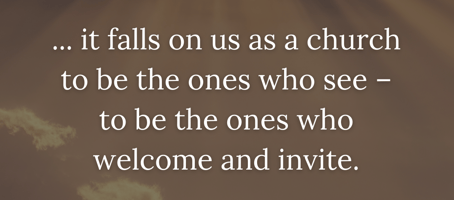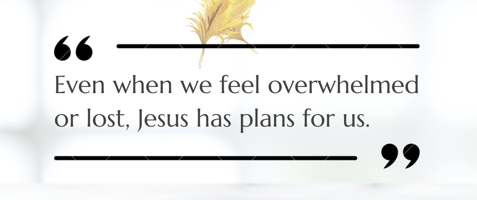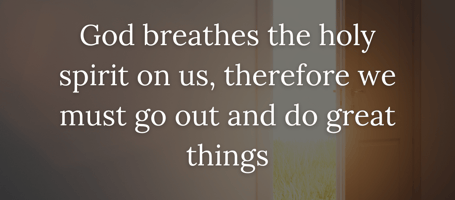This blog is based on a sermon by Pastor Teresa Howell-Smith on July 7, 2024 When we hear familiar...
Do You Want To Be Made Well?

This blog is based on a sermon by Pastor Teresa Howell-Smith on February 9, 2025
Do you want to be made well?
When I hear those words, I think about a thirteen-year-old from Wisconsin named Zuza who is battling cancer. She’s been fighting her illness since she was just three years old, and has recently been in the internet spotlight due to her positive outlook in the videos that she makes. She’s spent many days at the hospital and is now hoping to join a medical trial. Unfortunately, a couple of days ago she arrived and tested positive for COVID and had two small brain bleeds.
Zuza said that despite all of her defeats, she had manifested that the next time that she was tested, she would be better. Now, rethink about those words from Jesus: Do you want to be made well?
For her, there’s a sense of hope. In the fifth chapter of the Gospel of John, Jesus travels to the Pool of Bethesda, a pool known for its healing properties. People who had disabilities of every kind lay near the waters hoping for miracles of their own. As Jesus enters Jerusalem on the Sabbath, he notices one specific man suffering from an unspecified malady. In verse six, John tells us that Jesus asked the man, “Do you want to be made well?”
It's a simple question requiring a simple answer, but the man does not give one. Instead he registers a complaint. He says, “Sir, I have no one to help me into the pool when the water is stirred. While I am trying to get in, someone else goes down ahead of me.”
You can almost hear his defeated sigh. How many other pools had he visited? Did he ever have hope? Was he the kind of man who, with great enthusiasm, ran from one source to the next without ever finding what he felt he needed?
There are many who sit in a similar seat to this man of Bethesda. Perhaps you are battling a chronic illness. Perhaps it is a spiritual battle. Perhaps we are unable to grapple with the constant stream of terrifying news headlines. There are many uncertainties these days – what will happen to the protections of special needs children in our schools? What about the folks who work on farms who don’t show up for work because they are worried that they will be deported? What kind of ripple effect will these things have? Pharmaceutical companies are increasing the prices of necessary drugs. The list goes on and on.
We’re concerned about our health and the health of our loved ones. We’re concerned about our jobs. We’re simply waiting for the other shoe to drop. These are all issues that tear at us and keep our anxiety at an all-time high, causing us to feel like there is no hope – as if God has turned the lights off and left for vacation.
Perhaps we feel similar to this man at Bethesda who feels defeated. The pool may have worked for others, but not for him. In his answer to Jesus’ question we can see a tired defensiveness. He had already been at Bethesda for a long time, and he mistook Jesus’ question for an accusation rather than an invitation. It was as though he had been asked that very same question before.
There’s a hint of shame in his tone – if only he were able enough, fast enough or strong enough, he could be healed. Imagine standing alongside Jesus when he asked this disabled man of 38 years if he wanted to be healed. Maybe you would’ve been shocked. Why would Jesus ask such a thing at such a time in this man’s life? The man had tried to get himself to the healing water of Bethesda, yet others constantly beat him to it.
Maybe you’ve had a hangup for many years – whether it be physical, emotional or mental. Maybe you have tried running to “healing waters” of all sorts. Maybe you’re at a low point of discouragement in your life. You feel exhausted and ready to give up. But Jesus might be asking you that same question at this very moment in your own life: Do you really want to be made well?
The question of wanting to be healed refers to our hunger and the thirst of our soul. How hungry are you? Are you at a point where you’re ready to do anything to be healed? This is the essence of the fourth beatitude: Blessed are those who hunger and thirst for righteousness, for they will be filled. This disabled man was hungry for healing and Jesus knew it and honored him with the desire of his heart.
In a sermon published online by Michael Marsh titled “Get Up Off Your Mat,” Marsh writes:
Jesus doesn’t change our outer circumstances. He changes us. He calls us into a new way of being, seeing, acting, speaking, thinking. When we stand and rise to that new life we discover the circumstances have somehow changed. That doesn’t necessarily make life easy or mean we no longer have to deal with the circumstances of life. It makes our circumstances more manageable and we engage them from a different place and position. The pool of Beth-zatha is drained of its power over us. There is freedom where there was once imprisonment. Inertia gives way to creativity. Once stagnant waters now bubble with new life.
When Jesus asks the disabled man if he wants to be made well, he’s asking him if he wants to have some skin in the game. What do we do when our parents become sick? What about the various injustices we see happening around the world? Where is God when we lose that job we’ve worked at for 25 years and are fearful that we will have trouble finding a new one? How do we rise up from a place of sorrow?
Jesus asks, “Do you want to be made well?” We can do a lot of things. Sometimes we don’t know what to do so we put blinders over our eyes. We turn off the amount of information that we’re taking in. Or maybe we can organize and we can protest. We can walk and breathe and be kind to others. We can exhibit the kind of love that we want to see in the world. We can create a groundswell. Yes God, we want to be made well.
In her battle with cancer, Zuza was told after suffering from brain bleed that perhaps her body was simply dying. But Zuza disagreed. She said, “I’m not dying. I am living and I will be able to get to this trial.” And she did.
It is a divine justice that seeks to heal and to restore and to reconcile. It challenges us to love our enemies, to forgive those who wronged us, to give generously and to treat others with the same respect and kindness that we desire. As we go forth, may we embody that radical justice in our daily lives.
I want to leave you with the words of Archbishop Desmond Tutu:
“We are made for goodness. We are made for love. We are made for friendliness. We are made for togetherness. We are made for all of the beautiful things that you and I know. We are made to tell the world that there are no outsiders. All are welcome: black, white, red, yellow, rich, poor, educated, not educated, male, female, gay, straight, all, all, all. We all belong to this family, this human family, God's family.”
And so I ask the question: Do you, as Jesus asked the man at Bethesda, want to be made well? I think his answer was “yes.”
Hallelujah and amen.



